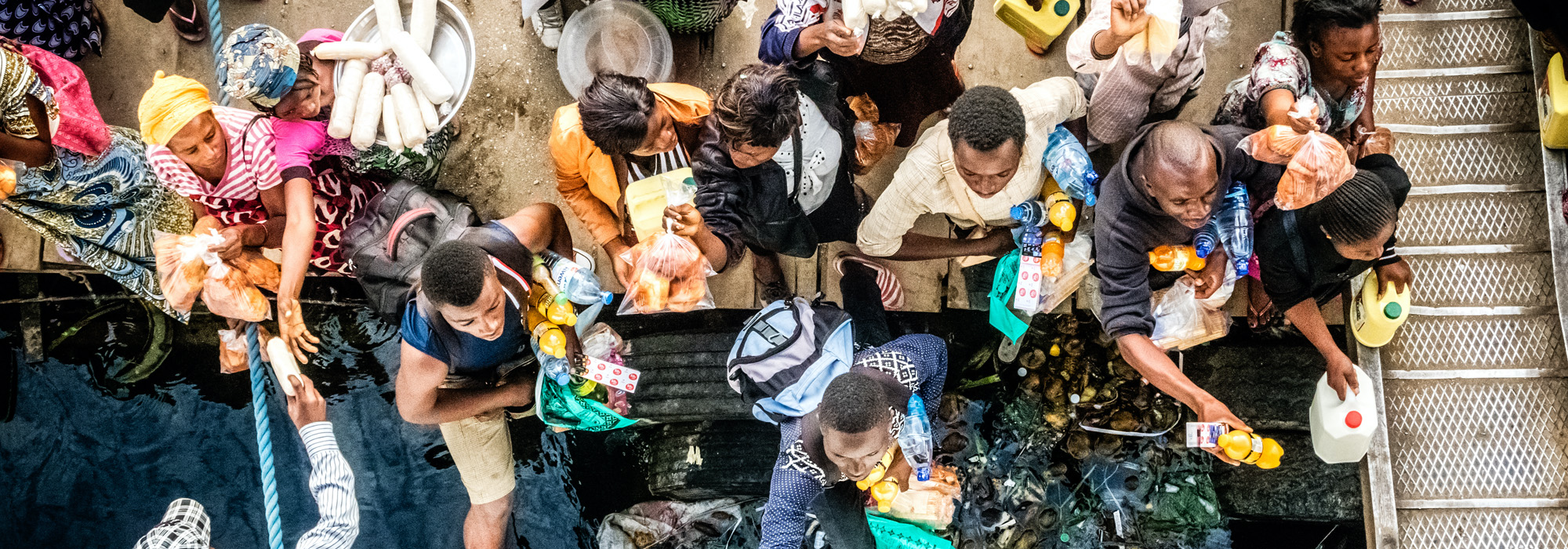
Even in the stillness of physical distancing and self-isolation, these are noisy and chaotic times. The ever-quickening drumbeat of the 24-hour news cycle, the constant social media churn and the threat of panic on the doorstep all have the potential to blur vision at a time when clarity of focus and longer sightlines seem more important than ever.
One thing that is clear is that no one will be untouched by the consequences of this global pandemic. The impact will be especially felt in low-income countries, where extreme poverty already breeds illness and disease, strains budgets, and stretches health systems. The global challenges are daunting but they also shine a spotlight on the world we have and the world we need – one that that is better equipped to mitigate the impact of illness, disease, and inequity, at all times, but also in times of crisis.
In that spirit, from 1,000 feet up, and from the vantage point of an advocate who has been working on global health related-issues for more than a decade, here are 8 lessons emerging from the COVID-19 crisis to guide politicians, policy-makers and those working to influence them as we collectively chart the path toward a safer, healthier, and more just world.
Global challenges demand global solutions. Our world is shrinking. Whether it’s our shared experience of the climate emergency, mass migration, or the spread of disease (new epidemics or ancient ones like tuberculosis), global challenges can’t be contained by lines on a map. We need to take to heart the recent words of UN Secretary-General António Guterres: “COVID-19 is menacing the whole of humanity — and so the whole of humanity must fight back.” We can also take pride in the fact that when Canada invests in collective global action, we have a track record of generating big wins. From eradicating diseases like smallpox to cutting child deaths in half – the proof of global solidarity and progress is plentiful.
Foreign aid is fuel. Foreign aid fuels solutions that improve the lives of millions around the world. Investments in Canadian development organizations working on the front lines, high-impact multilateral initiatives like Gavi, the Vaccine Alliance, or institutions like the World Health Organization (the WHO), are critical. So is ensuring that a greater share of existing development resources, like the World Bank’s International Development Association envelope (IDA), an $82-billion fund intended to help the poorest countries, is dedicated to strengthening low-income countries’ fragile health systems. Whether in times of immediate crises or protracted, aid is part of the solution. Political posturing that pits “us against them” is not. Our neighbour’s home is on fire, but it’s a duplex, and we live in the other half. The smart call is to invest in dousing the flames – for them and for us.
No more denying the connection between global health and economic impact. Even when armed with the very best cost-benefit analysis, a common refrain among global health advocates is that we are mostly ignored by finance ministers. Now, with the International Monetary Fund (IMF) forecasting a pandemic-related global recession that could be the worst in decades, it’s hard to dispute the link. The economic toll on individuals and on families, coupled with long-term productivity and recovery costs, makes it impossible for decision-makers, in Canada or anywhere, to ignore the connection.
We’re paying the price for inequitable, broken health systems. Even before the strain and the toll of COVID-19, the WHO estimated a projected shortfall of 18 million health workers by 2030, mostly in low- and lower-middle-income countries. Just like you can’t win a war without troops or an arsenal, you can’t expect to beat back a pandemic without properly supported front-line health workers, supplies and systems.
Focus is important, but let’s not ignore our peripheral vision. While we focus on the war to contain COVID-19, it’s counterproductive to ignore other important battles. For example, an outbreak of Ebola that started in August 2018 has claimed more than 2,000 lives in the Democratic Republic of the Congo. More than 5,000 people have died of measles in the same time period, with over 90 percent of them being children under the age of 5. Before COVID-19 emerged, tuberculosis (TB) was the world’s leading infectious disease – killing 4,000 people every day, 1.5 million each year, with 10 million falling ill each year. Researchers worry that more TB patients, already among the most marginalized populations, will succumb to the disease because of missed diagnosis and treatment as COVID-19 stretches resources. And, for the 7 million who are on treatment for TB, gaps in access to medicine might lead to more drug-resistant strains of TB. Without proper attention, COVID-19 has the potential to gut existing and routine health services, resulting in more diseases and more illnesses – and if those spike, they will put more pressure on systems stretched by COVID-19. It’s a vicious cycle and one we must avoid.
We do not invest enough in global health R&D. When we do, we don’t pay enough attention to access and affordability. With no vaccine, proven treatment, or widely accessible diagnostic, COVID-19 drives home a harsh reality: there’s a huge human toll to be paid if our sightline on critical global health R&D is through a rear-view mirror. Whether getting ahead of the next pandemic or finding better solutions for diseases of poverty that have been with us for decades, we need to ensure R&D is sufficiently funded. We also need to ensure that support extends to delivery. Availability and supply of vaccines, diagnostics, and treatments must be based on public health needs, not commercial or political priorities.
Anything is possible with political will. A post has been floating around social media asking the question “What if we responded to climate change like we are to coronavirus?” It’s an interesting question, even if we change climate to “malnutrition” or “homelessness” or “global poverty.” On so many fronts, we know what to do. Solutions exist. If we replicate the level of political will we’re seeing now from Canadian leaders and many others around the world, anything is possible.
People are resilient: there’s always space for hope. Whether it’s isolated Italians singing on balconies or the “care-mongering” that Canadians have been getting credit for in the global media, examples of solidarity, compassion and determination have been in steady supply throughout this crisis. I’m mindful of a lyric by Canadian poet and songwriter Leonard Cohen: “There’s a crack in everything. That’s how the light gets in.” Through it all, the resilience of the human spirit is a source of inspiration and hope.
As global leaders invest in responding, reconstructing and rebuilding at home and abroad, let’s not repair our world to restore its existing and persistent state of inequity. We have the opportunity to learn from the lessons of COVID-19 and rebuild our world for the better. Together, we can aspire to the world we need: a healthier, equitable, and more resilient world for all.
This article is part of the The Coronavirus Pandemic: Canada’s Response special feature.
Photo: An exchange of goods alongside a ferry in North Kivu, Democratic Republic of Congo, in October, 2019. Shutterstock, by Ben Houdijk









